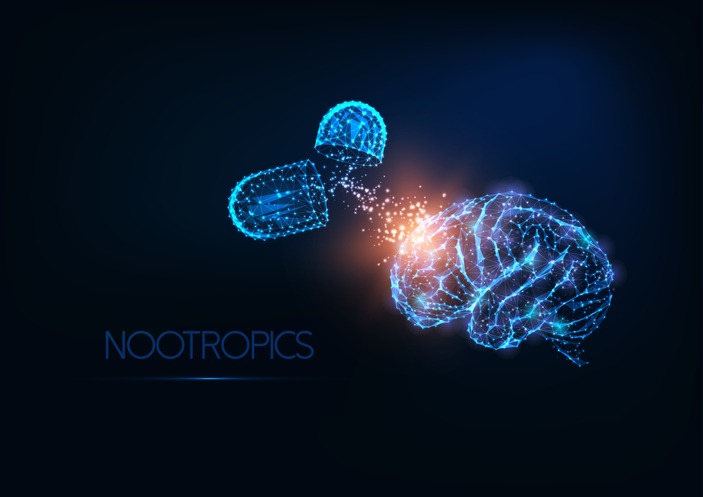A lot of individuals have trouble concentrating, paying attention, and learning new things, which is why drugs known as nootropics are becoming more popular among the general public. Most individuals, especially if they are already doing well at work or school, would welcome the chance to improve their productivity even more.
Following an explanation of what nootropics are and how they function, a comparison of naturally occurring and artificially produced cognitive enhancers, and some commonly asked questions, this paper will conclude.
What Are Nootropics?
Nootropics, often known as “smart medications” or “cognitive enhancers,” improve cognition and memory and increase learning, motivation, and creativity. They are sometimes referred to as “smart pills.” Nootropic is a term that means “mind-bending” when translated from Greek roots.
Roles of Nootropics
Nootropics are being used by a growing number of individuals nowadays in order to improve their performance at work. Nootropics may be helpful for various conditions, including cognitive decline, attention deficit hyperactivity disorder (ADHD), or even if you simply want to improve your job efficiency.
The following are some of the most important roles that nootropics play:
- Improving one’s memory
- enhancing one’s ability for attention and concentration
- Inspiring originality and inventiveness (thinking outside the box)
- Improving one’s mental and physical endurance (working for longer hours)
- Enhancing one’s feeling of motivation
If you take Nootropics, how do they help your brain?
A nootropic is any chemical that improves a person’s cognitive health; thus, the word “nootropic” is wide. Therefore, not all processes underlie the effects of nootropics are the same. In light of the above, it is important to note that the effects of these so-called smart medications are exerted in your brain through several common channels. There are several different methods by which nootropics may assist your brain, including the following:
- Developing neuroplasticity and its potential (the ability for brain cells and networks to grow and change)
- Increasing the flow of blood
- enhancing the protection of neurons
- Strengthening resistance to the effects of stress
Promoting Neuroplasticity
Neuroplasticity is a word that explains the ability of your brain to alter and develop throughout your lifetime. It is a widely held misconception that your brain stops changing and developing altogether once you reach a particular age. However, because of the discovery of neuroplasticity, we now know that the structure and function of our brains are always undergoing change and evolution.
It is possible to boost BDNF expression and prepare your brain to take in and absorb new information if you take the appropriate nootropics for your specific biology.
Studies conducted on animals suggest that some nootropics can boost brain chemical levels known as BDNF in the hippocampus and cerebral cortex. These are two regions of the brain that play important roles in learning and memory.
Improving Blood Flow
Your brain’s ability to absorb oxygen and nutrients is directly proportional to the amount of blood flow it gets. You will get symptoms whenever the circulation in your brain is not as effective as it might be.
When you don’t get enough oxygen, your brain can’t manufacture the energy needed to process data, build new connections, and store memories.
Enhancing Resilience Against Stress
It is difficult to prevent stress, but being skillful in managing your stress may potentially make a big change in the quality of your life. Stress can be avoided by practicing stress management techniques.
Your brain may suffer from unfavorable effects from chronic stress, including an increased risk of damage from oxidative stressors and inflammation. In addition to the negative feelings brought on by stress, this may also result.
In addition, a series of researches have demonstrated that prolonged exposure to stress may have a detrimental effect on brain function and eventually result in memory loss. In addition, a series of researches have demonstrated that prolonged exposure to stress may have a detrimental effect on brain function and eventually result in memory loss.
Common Natural Nootropics
Many natural nootropics available today may be purchased without a doctor’s prescription in health food stores and on the internet.
Some examples include:
- Caffeine
- Gingko biloba
- Ashwagandha
- Panax ginseng
On Simply you can find high quality natural supplements and nootropics.
What Is The Best Vitamin or Supplement for Brain Health?
Every person is different, so finding the optimal vitamin or supplement for brain health may be challenging. Enhancing neuroprotection, increasing neurotrophic factors like BDNF, and increasing stress resistance are all possible benefits, but their relative importance depends on the individual.

